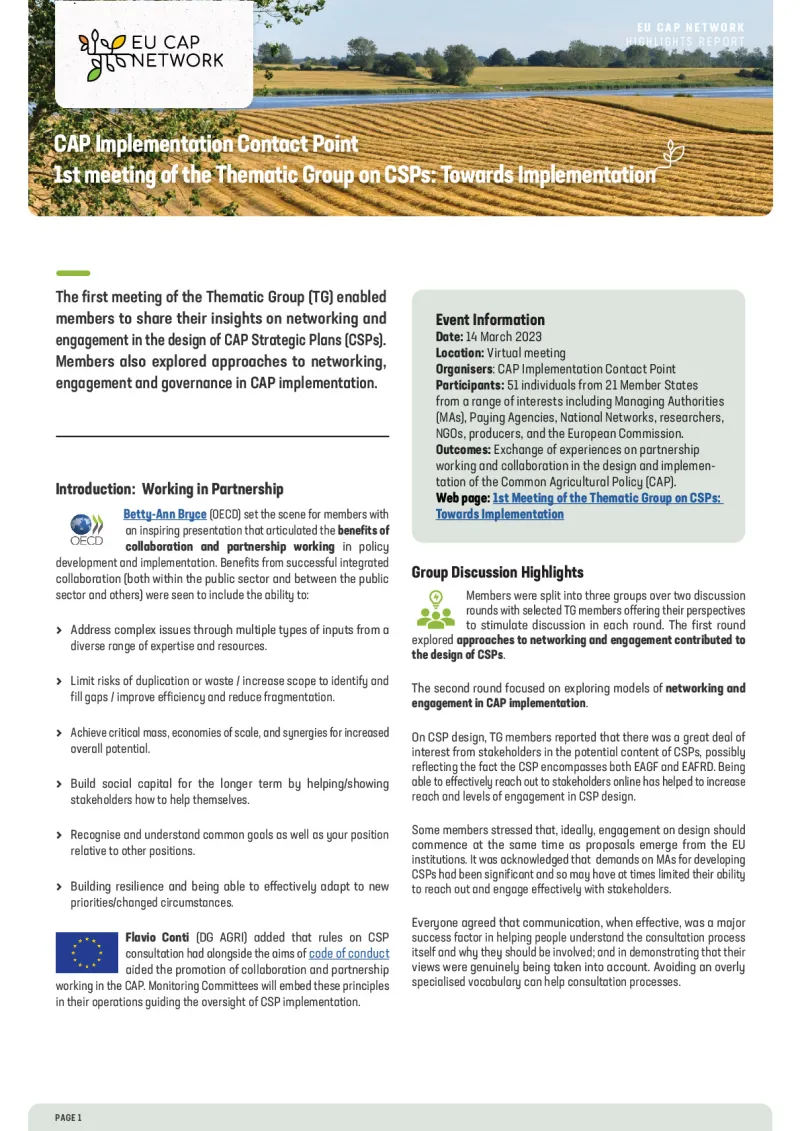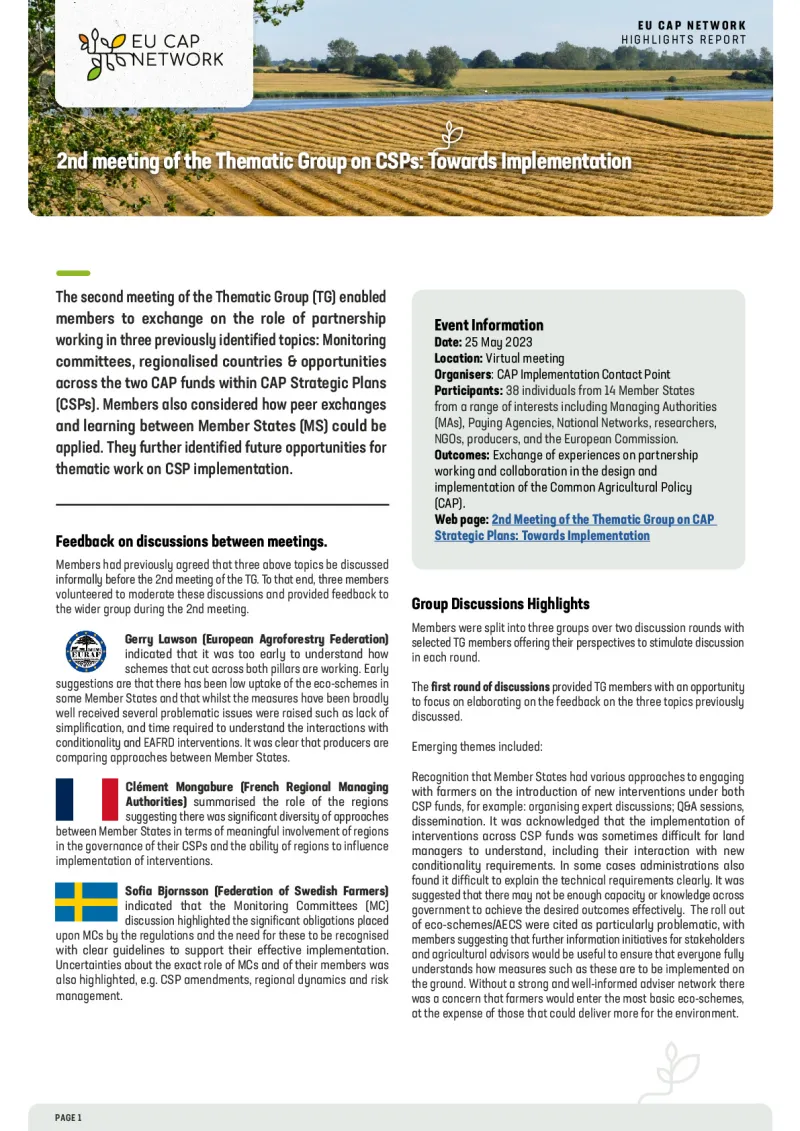Thematic Group on CAP Strategic Plans: Towards Implementation
This Thematic Group identified and explored early models of CAP Strategic Plans implementation that could be shared across Member States, including any key enabling and deterring factors.
Context

EU Member States are implementing the Common Agricultural Policy (CAP) 2021-27 with a CAP Strategic Plan (CSP) at the national level. Each CSP combines a wide range of targeted interventions addressing the specific needs of that EU country and delivers tangible results in relation to EU-level objectives.
Once the CSPs were approved, the Commission prepared a series of 'At a glance' overviews of the individual CSPs.
The application of partnership principles , building on the principle of subsidiarity and multi-level governance, is fundamental to the successful and effective programming, implementation, monitoring and evaluation of the CAP. Effective implementation of CSPs will rely on an inclusive approach involving public authorities, and economic and social partners, including bodies representing civil society.
This EU CAP Network Thematic Group (TG) provided an early opportunity to bring together a selection of EU-level stakeholders alongside NSUs, Managing Authorities and Paying Agencies involved in the design and implementation of CSPs to exchange on the key features, challenges and processes required to take the CSPs forward.
Objectives
The objectives of this TG were to:
- Identify key topics and exchange on similar approaches and areas of common interest.
- Identify and explore early models of implementation (including the setting up of inclusive and effective Monitoring Committees) that can be shared across Member States, including any key enabling and deterring factors.
- Consider how peer exchanges and learning between MS on CSP implementation could be successfully applied.
Activities
The first meeting (14/03/2023) enabled exchanges of experiences on partnership working and collaboration in the design and implementation of the CAP. Members also shared insights from their national perspectives. A closing panel cited the design and implementation of eco-schemes and agri-environment schemes as examples of instruments that would benefit from strong engagement, and stressed the importance of monitoring and evaluation.
In the second TG meeting (25/05/2023), members debated the role of partnerships working in three previously identified topics: Monitoring Committees, regionalised countries, and opportunities across the two CAP funds within the CSPs. Members also considered how peer exchanges and learning between Member States could be applied, and identified future opportunities for thematic work on CSP implementation.
Key findings
TG members produced a synthesis of key topics discussed, focusing on opportunities across the two CSP Funds (EAFRD and EAGF), regionalised countries and Monitoring Committees.
Discussions on opportunities centred around the CAP's green architecture, particularly the interactions between conditionality, eco-schemes and environmental-climate commitments. Members suggested that, in some countries, farmers found it difficult to understand how interventions related to EAFRD and EAGF were being implemented and therefore which schemes were available to them. Reasons for this most notably included that decision makers lacked the capacity or policy knowledge to set out the ‘how and why’ around interventions that had been put in place, and the outcomes envisaged.
TG members recognised that, under the new CAP, there is scope for support under EAFRD to be adapted and implemented at the regional level. Various examples were highlighted, with members acknowledging the potential benefits of a mechanism for regions to feed into CSP revision procedures via regional CSP implementation that is better connected with wider public policies at the regional level.
Members also reflected on the mobilisation of an effective Monitoring Committee (MC) for CAP Strategic Plans. Members reinforced the need for MCs to have real purpose, suggesting that it is essential that there is recognition on the part of governments that the MC is a partner who is there to work alongside the Managing Authority and be the vehicle for ensuring that the CSP is implemented appropriately. Members also suggested there should be significant opportunities for the MC to play a much greater role in the evaluation of the CSP. It was also accepted that there should be opportunities for regions to have their own regional MCs to support and enhance CSP implementation. Members further suggested that MCs (regional or national) should adopt a common approach and operate according to a set of minimum standards that are harmonised across the EU. TG members agreed that the production of guidance to support the establishment and operation of Monitoring Committees (and their effective application) would be welcome.
Learn more
Scroll down this page to find all the outputs of this Thematic Group and relevant resources related to this topic.
You can find other useful resources about this theme in our Publications section and in our Good Practices database.
If you have any questions or suggestions, please contact us at implementation@eucapnetwork.eu.
If you want to be informed when new content is available on this or related topics, subscribe to the EU CAP Network newsletter.

